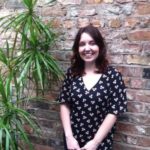The right to highest attainable physical and mental health is a universal human right that applies to everyone, regardless of immigration status. But sadly, in practice, many people face obstacles to receiving even basic healthcare.
The Equality and Human Rights Commision—with support from Doctors of the World—recently explored what using health services was like for those who are or have been in the asylum process in Britain. While we heard some really positive examples of medical staff showing empathy and compassion, we also identified a number of problems that need to be addressed urgently.
Some of these were fundamental problems with the entire system. The NHS charging policy in England has made healthcare unaffordable for many people who have been refused asylum. Many of those we spoke to were concerned that they may be arrested, detained, or deported as a result of their data being shared with the Home Office. Only people refused asylum in England are eligible to be charged for healthcare and data sharing for immigration purposes should be limited. However, we found that the fear of this was felt by a much wider group. We have therefore called for the government to make immigration proceedings and healthcare services completely separate and to exempt people who have been in the asylum process from charging in England, in line with the rest of the UK.
There is also a huge amount of confusion among individuals and healthcare professionals about who is eligible for free healthcare. This sometimes results in patients incorrectly being refused GP registration. Healthcare charging regulations are being applied inconsistently. For example, one individual who tried to register with a GP was told “We don’t accept refugees and asylum seekers that is our policy’”. Eligibility checks should never delay treatment and it’s crucial that healthcare providers address these discrepancies by increasing knowledge of healthcare entitlements among clinical and non-clinical staff and ensure checks are carried out in a non-discriminatory way.
We also found that information provided to asylum seekers is sometimes inaccurate or in a language or format they don’t understand, meaning that many individuals are unaware of their rights or how to assert them. One woman who had undergone female genital mutilation as a child experienced challenges in understanding the complexities of her pregnancy and the specific healthcare she would need due to the language barrier. To overcome this information deficit we want healthcare providers to provide clear and accessible information to people about their rights and proactively provide professional interpreters.
We know that many positive practices already exist, and that many people are already following human rights based principles. To build on these we’re asking all healthcare service providers and commissioners to consider the following questions:
- Are healthcare professionals including front-line staff such as receptionists, trained on asylum seekers’ and refused asylum seekers’ rights and entitlements, the problems they face in accessing healthcare and cultural sensitivities?
- Is the process for registering with a GP well understood by staff and patients?
- Are professional interpreters provided proactively to people and rights to request interpreters clearly explained in a way the person can understand?
- Are there ways for people who don’t speak English and have limited financial resources and access to the internet to register with a GP and make appointments?
- Is healthcare provided in a person centred way with clear consent and involvement by patients in their care and how is this monitored?
- Are services commissioned locally that meet the healthcare and access needs of people seeking and refused asylum?
By asking these questions and putting a human rights based approach at the heart of healthcare service delivery, coupled with action from the government, we believe we can move closer to truly realising everyone’s right to health.
We hope that our research, undertaken by Doctors of the World and Imperial College London, and our recommendations for improvement are useful for people across the healthcare sector and would be keen to hear from people as to how they are using this information.
Doctors of the World’s volunteers need your support: please give generously
-
£135 buys a medical backpack for a mobile medic working across Europe
-
£240 can help 300 mothers in Yemen test their children for malnutrition
-
£325 could pay for five vulnerable people to see a volunteer doctor at a UK clinic
Donate online: www.doctorsoftheworld.org.uk/BMJ
Donate by phone: 020 7167 5789
Registered charity number 1067406
 Rosie Wallbank leads a programme of work at the Equality and Human Rights Commission on ensuring asylum seekers and refugees are able to access the public services to which they are entitled. Twitter @EHRC.
Rosie Wallbank leads a programme of work at the Equality and Human Rights Commission on ensuring asylum seekers and refugees are able to access the public services to which they are entitled. Twitter @EHRC.
Competing interests: None declared
